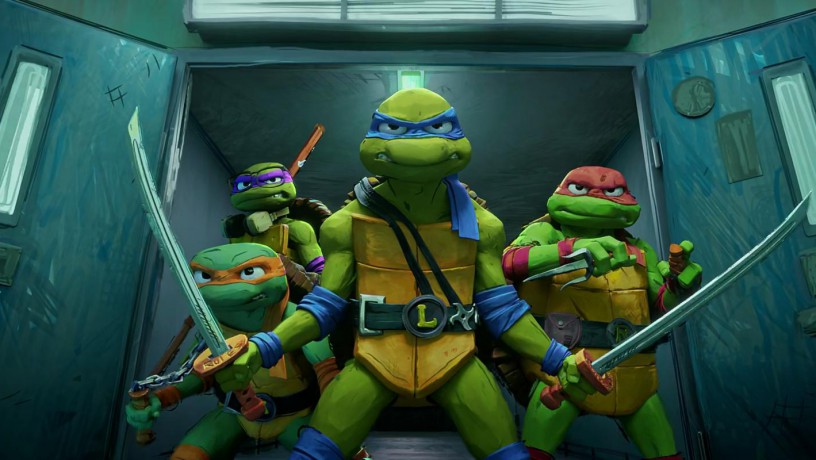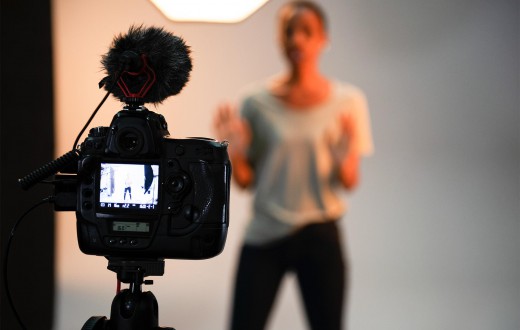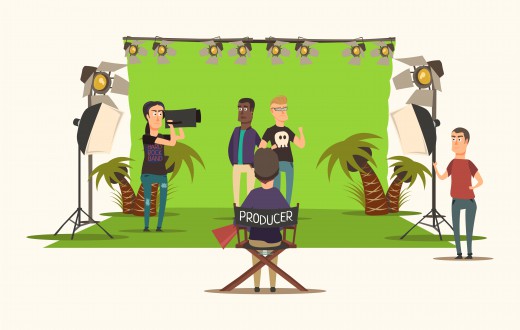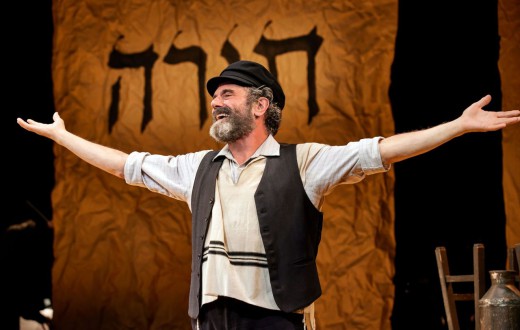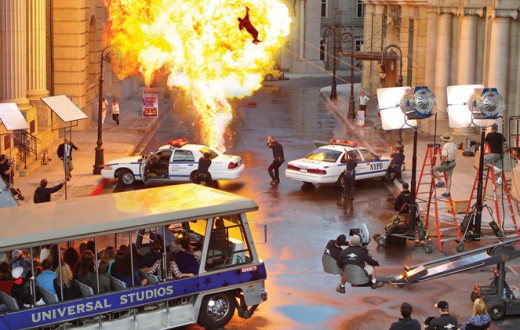Rich Delia is widely regarded as one of the most respected casting directors in the industry. Celebrated for his keen eye for talent and his expertise in casting both rising stars and seasoned actors in standout roles, Delia has been instrumental in shaping films like King Richard, Mortal Kombat 2, Teenage Mutant Ninja Turtles: Mutant Mayhem, and the highly anticipated Scream 7. His talent for understanding the nuances of a character and finding the perfect actor to bring that character to life is what sets him apart in the industry.
In this exclusive interview with DirectSubmit / NYCastings, Rich Delia offers a behind-the-scenes look at the casting process, shares his thoughts on discovering new talent, and provides invaluable advice for aspiring actors looking to break into the competitive world of film and television.
You started out as an actor and switched to casting. How did your experience as an actor influence your approach to casting, and what motivated you to make that transition instead of leaving show business altogether?
I absolutely think that having had experience as an actor influences my approach to casting. I utilize all of my training when speaking to and working with actors, talking about the beats of a particular scene, and in breaking down a script. It helps me with character motivation and development and helps me to understand where and why a character fits into the world of the script. Although actors study different methods, I think they all speak a similar language and it enables me to talk about scenes and characters when working with them in a way that can translate to a desired result. I had never thought about casting as a profession, even when I was acting, but when I tried it, I fell in love with the process. I have always loved actors and I feel that as a casting director I am able to be an actors advocate and to help champion people that I believe are the person to give voice to a role, regardless of their experience or other aspects that can come into play.
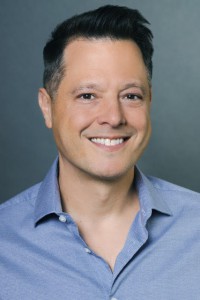
Give us some insight into your childhood. Were there specific influences, people, or experiences growing up that sparked your interest in storytelling and the world of film and television? How did those shape your path to becoming an actor then casting director?
I was always enamored with movies and television as a form of storytelling. Specifically, I loved movies from the 1930’s and 1940’s, be it film noir, historical epics, musicals or, later on, pre Hays code films. I have always responded to actors who embodied strong characters with a forceful point of view. My happy place as a child was sinking into another world for two hours and forgetting about everything else around me. That is probably why my favorite movie is still, ’The Wizard of Oz.’
How do you handle casting a project when you don’t feel a personal connection to the material?
I always try to form a personal connection to a piece of material I am working on. For me this usually happens through character. We are lucky to be able to work in all different genres, but if a character makes me feel something, I can get inspired by wanting to help tell their story. Sometimes they make me love them or feel hopeful and joyous, sometimes they make me question their motives, beliefs and actions and sometimes I might even despise them and disagree with them strongly, but if I care enough about a character to go on a two hour journey with them while reading the script, I know I can help find actors who will likewise care and want to help bring them to life.
How do you approach casting for well-known franchises, where fans have strong opinions about who should play certain roles?
I try to focus as much as possible on the reality of that role in the world of the script I may be casting. I appreciate that fans have strong opinions about characters they are familiar with in the entertainment eco-system, but try to focus on who that character is in the current script that I am working on. How do they relate to the other characters in the script? What is their back story and motivation? Asking the why, what, who and how questions that help me understand how the character lives and acts in the world we are presenting. Sometimes it may align with the image fans have, sometimes not, but I am not concerned with pre-conceived notions of what a role might be known as, rather how that roles exists in the project I am casting them in.
Improv can be a great tool during auditions, especially when two actors are auditioning together. If one of the actors isn’t strong at improv, does that affect both performances, including the one who excels at it?
Everything an actor does while working with another actor affects both performances, just as in life where the people we meet and the way that we interact with them affect our interactions. In an ideal scenario if improv is needed during an audition then hopefully both actors can let go of whatever prep work they have done or what they may have pre-planned and be willing to get in the ring with the other actor and react to the moment in front of them in that given moment in time.
How do you handle the situation when you’re collaborating with another casting director and you have differing opinions on which actors should be cast for certain roles?
Filmmaking is a collaborative medium, as is casting and I think that healthy discussion about why someone may or may not be right for a role, or how different people may see things in a different light can be constructive and healthy. Ultimately the director needs to cast someone that they feel inspired to work with and what we can do is introduce and present actors that we truly believe are the best person to tell a characters story and vigorously fight for why we believe that is the case.
What’s your process for discovering new talent, and how important is it to you to cast fresh faces?
I would hope that looking at the projects I have worked on in my career it is apparent that it is very important to me to find and advocate for fresh faces. To me, it is the most exciting part of my job. And it doesn’t just mean a newer actor, it can also mean presenting a known actor in a different light. One of the amazing things about casting is you get to see actors in very intimate settings where they are able to play and explore different facets of their personalities and sometimes even open up about the kinds of roles they would love to play if given the chance. I love when I see an actor in a completely new light or when they surprise me in a given role. Along with uncovering as many stones as you can when looking for new talent, this can be a very rewarding and satisfying part of the job.
What are some challenges you face when casting for projects with limited time or budget?
Every project has challenges and you have to work with what you are given and try to look at the silver linings. I have cast an entire film in three weeks, which is not ideal, but because everyone was aware we were on a short timeline it put a real focus on the process which allowed us to move quickly. That turned into a positive. When working with budgetary constraints, I may be able to introduce an actor I believe in, into the process when they otherwise may have had a harder time being seen. Another positive. In my job, as in life, I try to be an optimistic person. There would be no downside if there was not an equal upside.
What unique challenges do you face when casting for an animated show?
I am a very visual person so I need to close off that part of my brain for a bit and focus on the tone, quality and energy of a performers voice. Sometimes I will actually close my eyes when listening to tapes to try to heighten one sense while dampening another.
What advice would you give to actors who are just starting out and looking to make a strong impression during auditions?
Everyone sees, feels and interprets characters differently when reading a script and I encourage actors to try as much as possible to show your version of the role, not what you think someone else is looking for. When you try to execute what you think the director or producers are looking for, you will often leave the audition going, “I should have done this, I could have done that.” If you make unique decisions about how you see a given role and execute them in the reading, then regardless of what happens after the audition you can say, “You know what? For the 10 minutes I was that character, I did exactly what I wanted to do with it” and then let it go. I believe it can help with the “coulda,’ woulda’, shoulda’” and contribute to the longevity and contentment of actors career.

